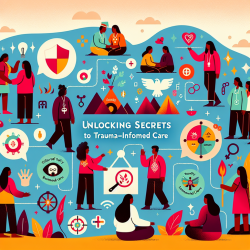Introduction
The representation of Latinx adults in STEM fields is alarmingly low, with only 7% participating in such occupations despite Latinx individuals making up 16% of the overall workforce. The study "Developing STEM Career Identities among Latinx Youths: Collaborative Design, Evaluations, and Adaptations during COVID-19" sheds light on a community-based participatory action research (CbPAR) initiative aimed at reversing this trend. By focusing on middle school students, the project seeks to inspire Latinx youth to pursue STEM careers through a combination of advanced STEM learning and career development activities.
Program Implementation and Key Findings
The program involved summer and after-school activities that integrated network science and career development curricula. Using a quasi-experimental pretest–posttest design, the study assessed changes in STEM and career self-efficacy, as well as career identity. The results were promising, showing improvements in self-efficacy and an increased number of youths expressing intentions to pursue STEM careers.
Key elements of the program included:
- Community-based participatory action research collaboration between Sociedad Latina and Boston University.
- Design of STEM and career development lessons, incorporating civic engagement and role model sessions.
- Adaptations for remote learning due to the COVID-19 pandemic.
Practical Strategies for Educators
For educators looking to replicate or learn from this initiative, consider the following strategies:
- Engage with Community Partners: Collaborate with local organizations to leverage their expertise in culturally responsive education.
- Incorporate Role Models: Connect students with professionals in STEM fields to provide relatable role models and mentorship.
- Adapt to Current Challenges: Utilize technology to deliver interactive and engaging lessons, especially in remote learning environments.
Encouraging Further Research
This study highlights the importance of fostering a STEM career identity among underrepresented groups. Practitioners are encouraged to explore further research in this area to refine strategies and expand successful programs. By doing so, we can ensure a more diverse and inclusive future in STEM fields.
To read the original research paper, please follow this link: Developing STEM Career Identities among Latinx Youths: Collaborative Design, Evaluations, and Adaptations during COVID-19.










